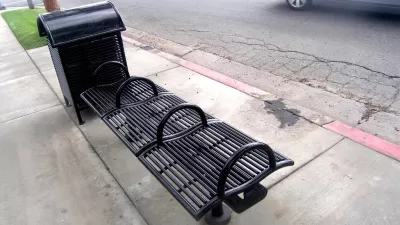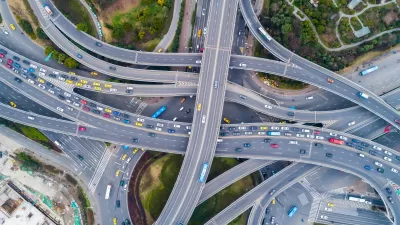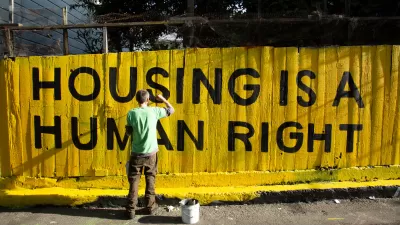If you think your city is doing all it can to make its public spaces pleasant for all residents, think again. From “pig’s ears” to the "Camden Bench", Frank Swain explores the "secret tricks" cities use to make spaces uncomfortable and unattractive.

"When Selena Savic walks down a city street, she sees it differently to most people," writes Swain. "Whereas other designers might admire the architecture, Savic sees a host of hidden tricks intended to manipulate our behaviour and choices without us realising – from benches that are deliberately uncomfortable to sculptures that keep certain citizens away."
"Modern cities are rife with these 'unpleasant designs', says Savic, a PhD student at the Ecole Polytechnique Federerale de Lausanne in Switzerland, who co-authored a book on the subject this year."
Though such designs are often intended to cause physical discomfort, they raise some uncomfortable ethical questions as well. "Indeed, one of the main criticisms of such design is that it aims to exclude already marginalised populations such as youths or the homeless," notes Swain. "Unpleasant design, Savic says, 'is there to make things pleasant, but for a very particular audience. So in the general case, it’s pleasant for families, but not pleasant for junkies.'”
FULL STORY: Secret city design tricks manipulate your behaviour

Planetizen Federal Action Tracker
A weekly monitor of how Trump’s orders and actions are impacting planners and planning in America.

Maui's Vacation Rental Debate Turns Ugly
Verbal attacks, misinformation campaigns and fistfights plague a high-stakes debate to convert thousands of vacation rentals into long-term housing.

Restaurant Patios Were a Pandemic Win — Why Were They so Hard to Keep?
Social distancing requirements and changes in travel patterns prompted cities to pilot new uses for street and sidewalk space. Then it got complicated.

In California Battle of Housing vs. Environment, Housing Just Won
A new state law significantly limits the power of CEQA, an environmental review law that served as a powerful tool for blocking new development.

Boulder Eliminates Parking Minimums Citywide
Officials estimate the cost of building a single underground parking space at up to $100,000.

Orange County, Florida Adopts Largest US “Sprawl Repair” Code
The ‘Orange Code’ seeks to rectify decades of sprawl-inducing, car-oriented development.
Urban Design for Planners 1: Software Tools
This six-course series explores essential urban design concepts using open source software and equips planners with the tools they need to participate fully in the urban design process.
Planning for Universal Design
Learn the tools for implementing Universal Design in planning regulations.
Heyer Gruel & Associates PA
JM Goldson LLC
Custer County Colorado
City of Camden Redevelopment Agency
City of Astoria
Transportation Research & Education Center (TREC) at Portland State University
Jefferson Parish Government
Camden Redevelopment Agency
City of Claremont





























